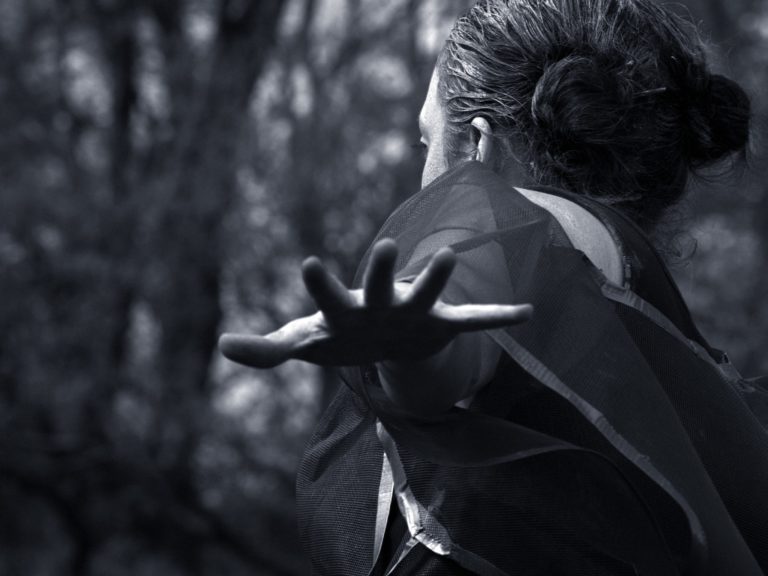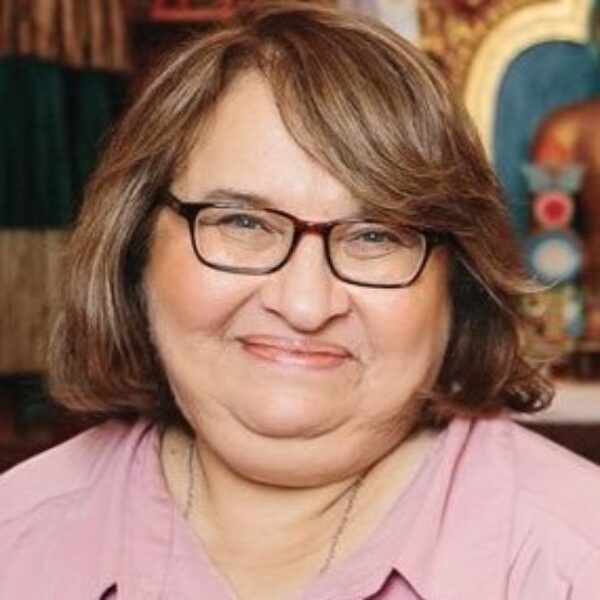
Image by Bonnie Natko/Flickr, Attribution-NonCommercial-NoDerivs.
Denial Is Tricky
One of the main conditions that causes suffering to become worse is denial. You know the feeling: we get in an argument with a friend, but pretend we are not angry and swallow a whole bunch of feelings until resentment bubbles to the surface in a different context. We notice a homeless person on the street and we turn away, convinced that ignoring him will effectively push our discomfort away.
At our core, we assume that hiding from pain will somehow keep us from feeling it. Of course, trying to shut our minds off to suffering effectively ensures that it will persist, in some form or another.
There’s something admittedly difficult about trying to help a situation that is so much bigger than us. This, I think, is a dynamic similar to the one that makes us culturally so averse to confronting our fear of death. We become so panicked at the prospect of opening up to fear that we end up clinging to it as though it were something more than our view. We think we are avoiding a thought that will limit us when, really, our fixation on avoidance is precisely what makes our world very small.

Many years ago, Joseph Goldstein and I were in Hawaii teaching a retreat together, when we confronted what felt like a near-death experience. One day, I was leading a meditation when I heard the phone ringing repeatedly from downstairs, where the retreat center office was located. Joseph was out of earshot, so I felt somewhat responsible for making sure someone answered the phone, which was clearly disturbing the students. But instead, I tried to ignore it and reasoned that a staff member would answer it eventually.
No one did, and the phone kept ringing. Suddenly, I had a strong feeling in my gut that something was wrong, so I ended the meditation session and answered the phone myself. On the other end was a representative from the Civil Defense Department of Hawaii calling to report that the largest tidal wave in history was expected to hit us that day.
At the time, I was shocked and in a state of disbelief — denial even. But I knew we had to move forward and make a plan to get us all toward safety. The woman from the Civil Defense Department explained that our center was an hour away from the nearest safe location, and we only had two vans. We were stuck. The woman instructed me to get everyone and their belongings to the highest point in the facility.
As we sat waiting for the tidal wave, Joseph and I led meditation to the group. Time felt dilated and unfamiliar as we sat together, essentially awaiting the possibility of death. During meditation, we were letting go of everything known.
Of course, I am grateful that nothing at all ended up happening. The tidal wave missed the island. The next day, everyone on the retreat was in touch with more profound feelings of gratitude, as we had all settled into a very vulnerable place of letting go.

Mindfulness is a very potent force in these times of fear. At one point in my life, I remember thinking that mindfulness only applied to the good times in life. In particular, I am thinking of an experience in Burma during the days when you could only get a one-week visa into the country. I spent money and traveled from India to study under very special teachers, when I developed a persistent, painful cough. I felt that I had ruined my experience. I was blaming myself for getting sick, and fixating on the misery I felt because of my cough: “I came here to get enlightened! Now I can’t even get any rest because I’m coughing. What a waste!”
When I complained to Sayama, the head teacher at the retreat center, she “comforted” me by telling me, “This will be good practice for when you die.” Like many times along my travels, I was shocked, and then greater understanding opened within me.
As someone who identified as a part of a “groovy generation,” I didn’t feel consciously that I was avoiding thinking about death. I thought I wanted to die “consciously.” I meditated on death as an idea in the abstract, but not once did I think about what physical pain I might feel in the process, or inability to do what I wanted.
Sayama was completely right. Her advice not only encouraged me to consider the parts of death I was turning away from, but also invited me to think about how I was allowing fear to limit my awareness in other aspects of my life. I was practicing meditation and ostensibly felt devoted to my spiritual journey, but I still was in denial. Anything that makes me uncomfortable just doesn’t have to exist, I had thought.

Denial is tricky. Sometimes, we think we are not in denial because we recognize the existence of an uncomfortable feeling, but still turn away from it. Our denial voice might say, “Of course I know I am going to die, but why think about it?”
We need not dig deep into all the possible physical maladies we might experience when we die — that’s not the point of opening up to discomfort. The larger point is that each moment becomes immensely powerful when we strip away various denials. We can recognize our fear of death, of change, of letting go of our attachments, and feel the discomfort of that recognition. By being honest with ourselves about our various forms of suffering, we don’t feel more suffering — we create freedom.
